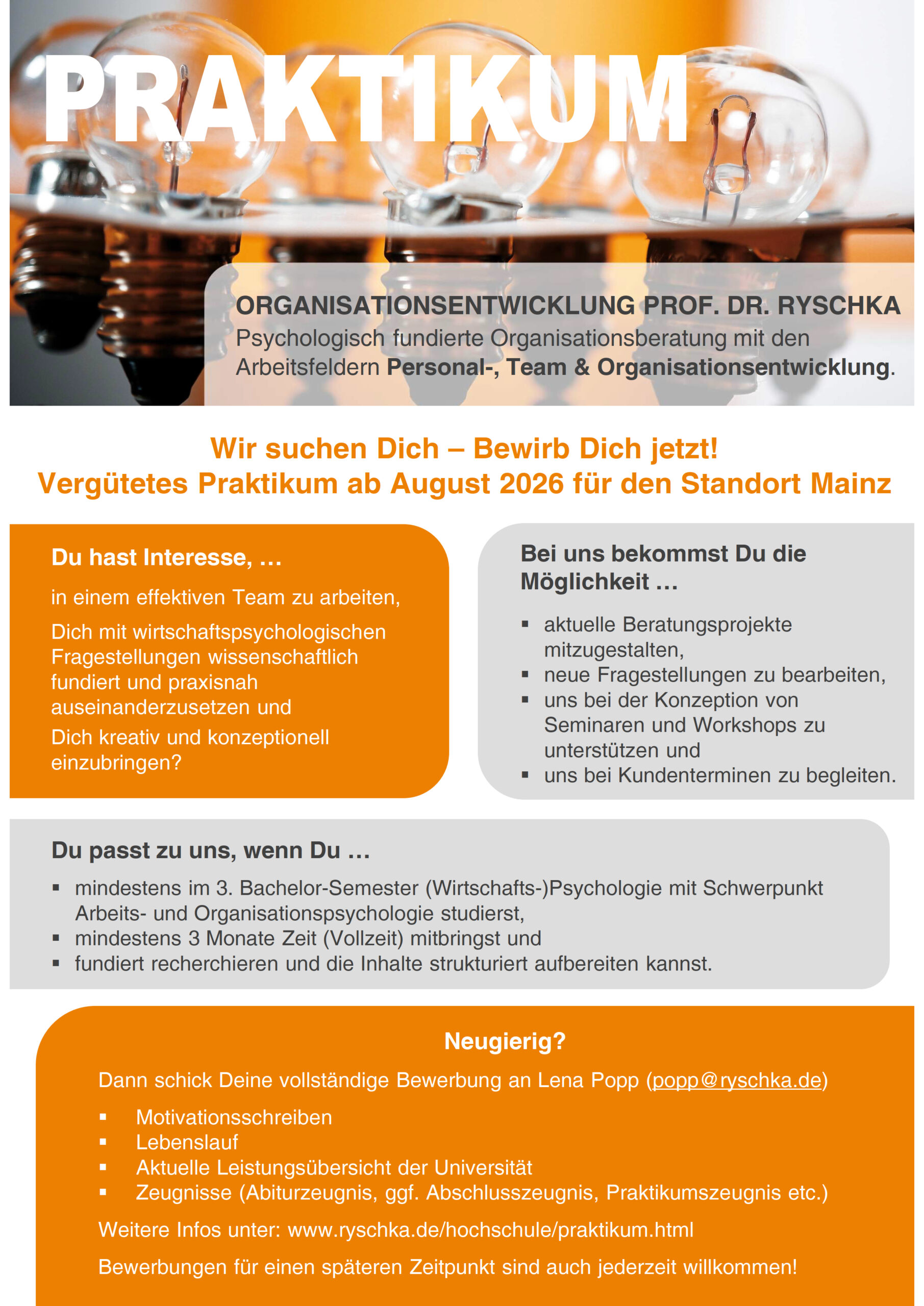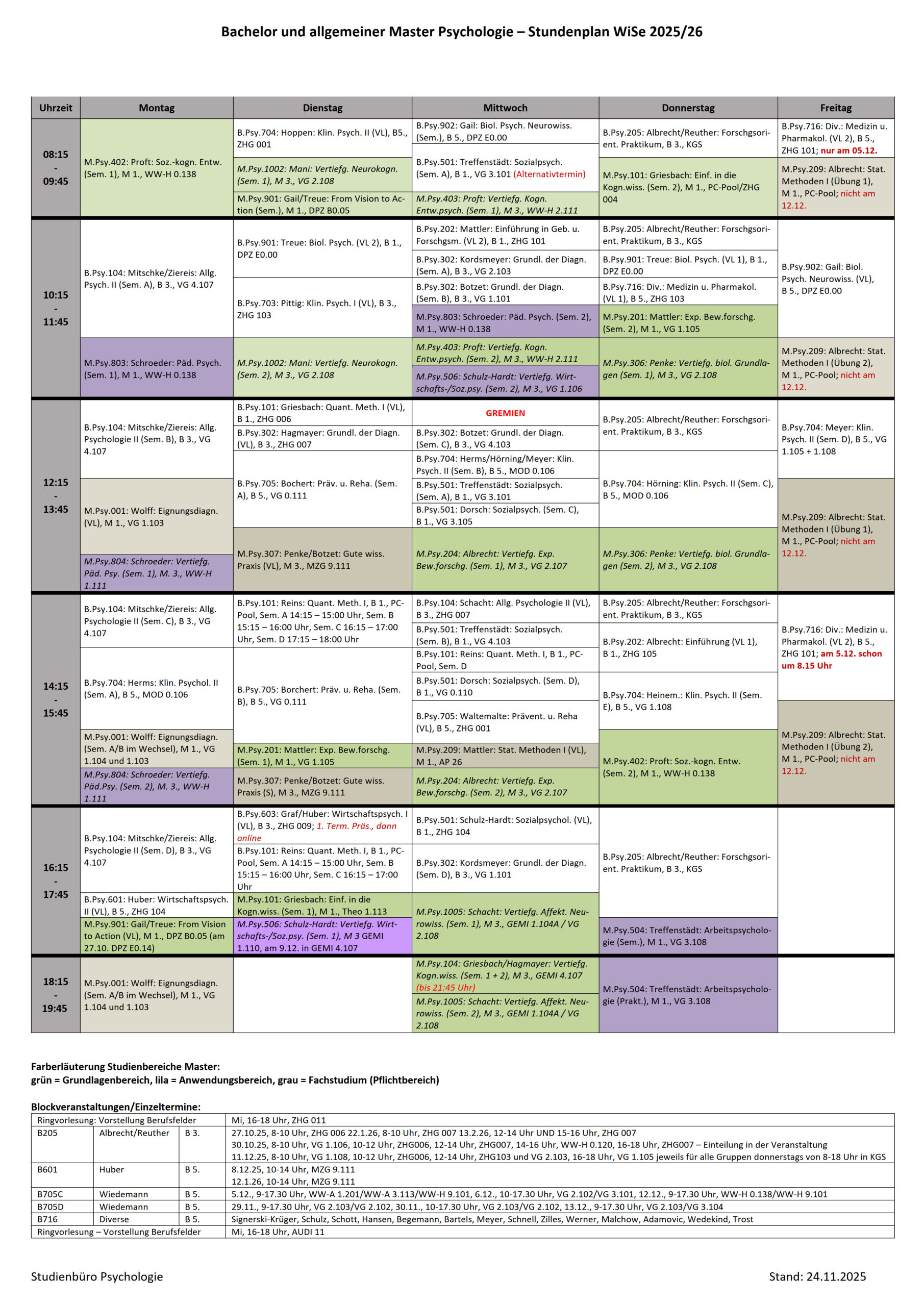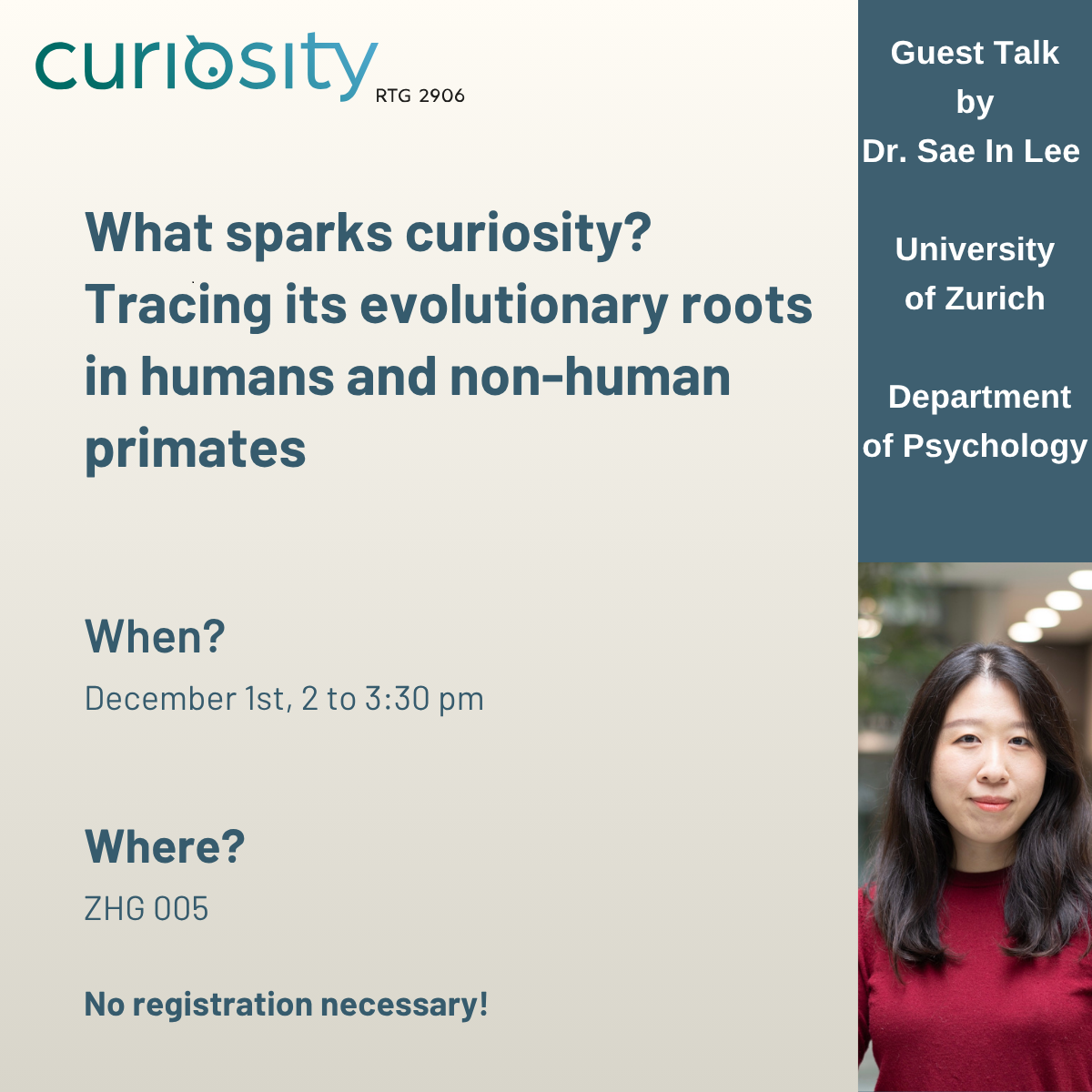
Schon gewusst? Auf der Homepage gibt es einen Wegweiser für die Psychologie. Hier finden Sie Informationen von A bis Z zu Suchanfragen und Zuständigkeiten (nicht nur) in der Psychologie.

Schon gewusst? Auf der Homepage gibt es einen Wegweiser für die Psychologie. Hier finden Sie Informationen von A bis Z zu Suchanfragen und Zuständigkeiten (nicht nur) in der Psychologie.

Teilnahme Online-Untersuchung für 1 VP-Stunde
“Vorhersagen beim Lesen”
Wir vom Team der Pädagogischen Psychologie suchen TeilnehmerInnen für eine ca. 45-minutige Online-Studie. In der Studie wirst du gebeten, zwei Texte zu lesen und jeweils das nächste Wort vorherzusagen.
Die Studie wird in Kooperation mit der McMaster University (Kanada) durchgeführt und ist über folgenden Link zu erreichen:
https://run.pavlovia.org/Jordan_Gallant/cloze_probability_typing_german_gottingen
Am Ende der Untersuchung erhältst Du einen Teilnahme-Code. Wenn Du diesen an giulia.zantonello@uni-goettingen.de schickst, dann bekommst Du eine elektronische Bestätigung über 1 VP-Stunde.
Bitte den Link auch gerne weiter teilen! Vielen Dank für Deine Unterstützung!
Die angebotenen Veranstaltungen für das Wintersemester 25/26 können den Studienplänen (Bachelor / Master) sowie dem vorläufigen Stundenplan entnommen werden.
Bei Rückfragen wenden Sie sich gern an das Studienbüro.


Im Rahmen des Moduls Grundlagen der Diagnostik haben Studierende des 3. Fachsemesters Psychologie eigene Fragebögen zur Erhebung unterschiedlicher Persönlichkeitsmerkmale erstellt. Um die Nützlichkeit der erstellten Fragebögen einzuschätzen, sind wir auf eure Mithilfe angewiesen. Wir würden uns sehr freuen, wenn ihr die Studierenden unterstützen würdet, indem ihr an ein oder zwei der Studien teilnehmt. Im Schnitt dauern diese 5-10 Minuten. Einen groben Einblick über das Thema der jeweiligen Studien könnt ihr dem Studienlink entnehmen.
Unter folgendem Link findet ihr eine gesammelte Übersicht aller Studien:
https://docs.google.com/document/d/1OJOtEEU1Z21N9jGac8VLQErcjt_cGxxIG1iiSHImFMI/edit?usp=sharing
Vielen Dank für eure Mithilfe!
Tobias Kordsmeyer-Storp & Laura Botzet
Liebe Studierende,
die Veranstaltungen des Moduls M.KliPPT.1011 finden ab sofort im KWZ 0.604 statt.

The RTG 2906 „Curiosity“ invites to a Guest Talk: “ What sparks curiosity? Tracing its evolutionary roots in humans and non-human primates „. The talk is delivered by Sae In Lee from the University of Zurich. Scheduled for December 1st, 2025, 2 pm in ZHG 005.
What is the lecture about?
Curiosity, the drive to seek new information, shapes how we explore, learn, and share knowledge with others. In this talk, Sae In Lee will present a collaborative research project comparing curiosity in chimpanzees and pre-verbal human children. She addresses two main questions. First, is curiosity always about novelty, or can familiar objects also spark curiosity? Second, how do social cues, such as another individual’s emotional expression of surprise or interest, shape curiosity? Using non-verbal behavioral paradigms designed for robust cross-species comparison, we investigate whether curiosity can be triggered socially even when the object itself remains hidden.
In addition to this comparative work, Sae In Lee will share findings from her doctoral research on social learning in wild Javan gibbons. These studies demonstrate how socioecological factors shape learning opportunities, for example when individuals become curious about food by observing others’ feeding behaviors or by relying on their own exploration. Together, these lines of research highlight curiosity as both an individual and social process, one that not only drives curiosity but may also have deep evolutionary roots in social learning and cultural transmission.
About the speaker
Sae In Lee is a Postdoctoral Researcher at the University of Zurich, Switzerland, studying comparative cognition focusing on social cognition and prosocial behavior in humans and non-human primates. She completed her PhD in behavioral ecology at Ewha Womans University in South Korea, where she investigated social and ecological cognition in wild gibbons in Indonesia as well as social influences on stress and learning behavior in captive gibbons and baboons. Her current research focuses on curiosity, particularly on what drives it and how social cues shape it in both humans and non-human primates.
Online-Infoveranstaltung der PKN: Die fachpsychotherapeutische Weiterbildung
Wann: 05.12.2025, 15:00 bis 17:00 Uhr
Wo: Zoom-Webinar
Anmeldung: Klicken Sie hier, um sich für eine Teilnahme zu registrieren.
Laut Aussage des NiZzA können die Termine erst festgelegt werden, wenn die genaue Teilnehmerzahl bekannt ist.
Vorgesehen ist in jedem Fall der März für die Parcoursprüfung. Die MPF findet voraussichtlich Ende März/ im April statt.